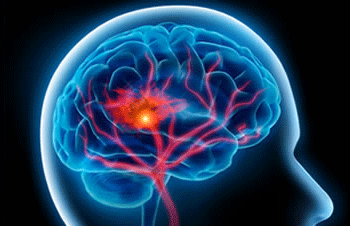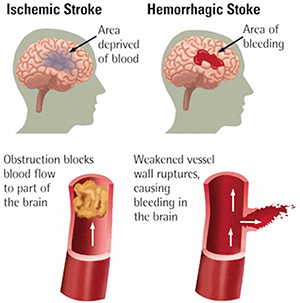What is a Stroke?
 A stroke is a serious medical condition that requires emergency care. A stroke can cause lasting brain damage, long-term disability, or even death.
A stroke is a serious medical condition that requires emergency care. A stroke can cause lasting brain damage, long-term disability, or even death.
A stroke occurs if blood flow to a portion of the brain is blocked. Blood carries oxygen to all parts of the brain. Without oxygen, brain cells start to die after a few minutes. A stroke can also occur if blood leaks into the brain and puts pressure on brain cells. This pressure can cause damage to the cells of the brain.
If brain cells die or are damaged because of a stroke, symptoms occur in the parts of the body that these brain cells control. Examples of stroke symptoms include:
- Sudden weakness
- Paralysis or numbness of the face, arms, or legs (paralysis is an inability to move)
- Trouble speaking or understanding speech
- Trouble seeing

If you think you or someone else is having a stroke, call 911 right away.
Do not drive to the hospital or let someone else drive you. Call an ambulance so that trained medical personnel can begin life-saving treatment on the way to the emergency room. During a stroke, every minute counts.
Looking for More Information?
The American Stroke Association offers Stroke Connection® e–news and is published monthly. Stroke Connection has been the award-winning voice of support, information and inspiration for a vast community of stroke survivors and their families.
Connect and share our stories of survival and tips for living a healthier, longer life.